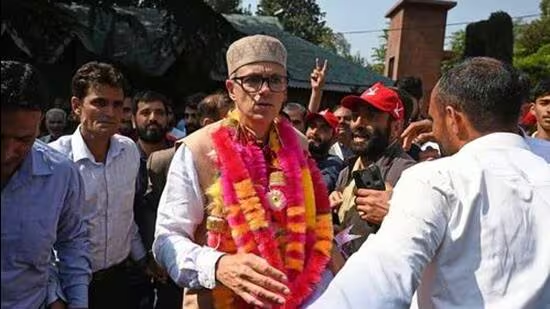The Centre has taken a pivotal step towards restoring democratic governance in Jammu and Kashmir by revoking President’s rule. This change, announced through an official order issued by President Droupadi Murmu, comes after a prolonged period of central administration that began in 2018. The revocation sets the stage for the appointment of a new Chief Minister, marking a transition from central control to local leadership in the Union Territory. As Jammu and Kashmir prepares for this shift, political parties and citizens are gearing up for a new era of governance.
Background: A Long Period of President’s Rule
President’s rule was initially imposed in Jammu and Kashmir in December 2018, following the collapse of the PDP-BJP coalition government. After six months of Governor’s rule, the state moved into a period of direct central governance under the President’s rule. This arrangement was further complicated by the reorganization of Jammu and Kashmir into a Union Territory in October 2019, stripping it of its statehood and special status under Article 370.
During this period, the Union Territory was governed by the Centre through a Lieutenant Governor (LG), with a focus on ensuring security and managing local administration. The revocation of President’s rule, however, signals a return to local political processes and represents a significant change in the governance structure of Jammu and Kashmir.
The Official Order and Its Implications
On October 13, 2024, the President of India, Droupadi Murmu, issued an order to revoke President’s rule in Jammu and Kashmir. The decision is rooted in the provisions of the Jammu and Kashmir Reorganisation Act, 2019, particularly Section 73, which allows for such a revocation. The order specifies that President’s rule will end immediately before the appointment of a Chief Minister under Section 54 of the Act, paving the way for new local leadership.
The move has been welcomed by regional political parties, who see it as a step toward normalizing governance in Jammu and Kashmir. The National Conference (NC) and other parties have long advocated for the restoration of an elected government, and this revocation represents a chance for them to re-engage with voters and present their vision for the Union Territory’s future.
Reactions and the Road Ahead
Omar Abdullah, Vice President of the National Conference, described the decision as “a long-awaited move that paves the way for a more accountable and representative government.” He emphasized that local governance will be crucial for addressing the unique challenges faced by the region, including development, security, and economic revival.
Lieutenant Governor Manoj Sinha also addressed the revocation, stressing the importance of a smooth transition to elected governance. He expressed confidence that the upcoming political changes would benefit the people of Jammu and Kashmir, offering a more direct voice in their administration.
Key Challenges for the Incoming Government
While the end of President’s rule opens the door to a new government, it also presents several challenges:
- Security Management: Despite improvements, security remains a key concern in Jammu and Kashmir, with sporadic incidents of unrest. The new government will need to prioritize maintaining stability while fostering development.
- Economic Revival: The Union Territory has faced economic challenges, including high unemployment and disruptions in tourism. The new administration will need to work on policies that stimulate growth and attract investment.
- Public Trust: After years of central rule, regaining the trust of the local population will be critical for the newly appointed government. This will involve effective communication and addressing long-standing grievances of the people.
Opportunities for Democratic Renewal
The return of local governance brings with it the opportunity to rejuvenate democratic processes in Jammu and Kashmir. An elected Chief Minister and government can work towards addressing local aspirations and implementing region-specific policies. This transition also allows for renewed dialogue with stakeholders in the region, contributing to a more inclusive approach to governance.
The revocation of President’s rule in Jammu and Kashmir marks the beginning of a new chapter in the Union Territory’s history. With the potential appointment of a Chief Minister, the region is set to experience a shift from centralized governance to a more representative model. While challenges lie ahead, the opportunity to build a more inclusive and stable future is now in the hands of the region’s leaders and its people. The coming months will be crucial in shaping the political and developmental trajectory of Jammu and Kashmir.


Leave a Reply